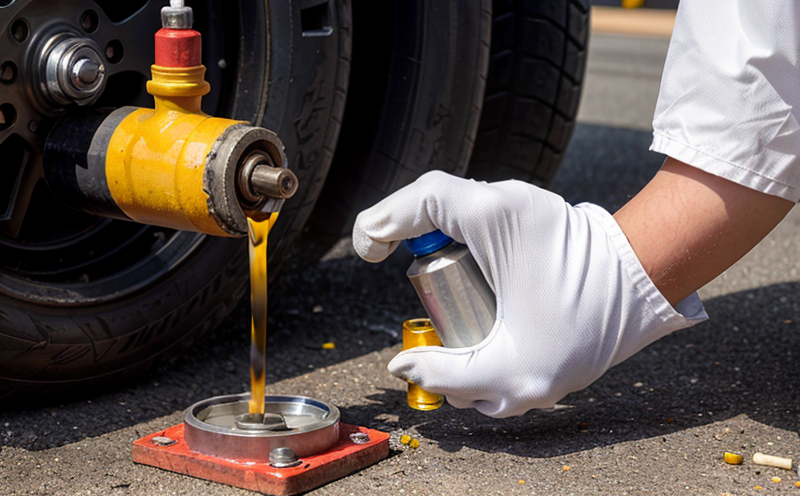ISO 10370 Carbon Residue Testing of Fuels (Micro Method)
The ISO 10370 standard provides a method to determine the carbon residue value of petroleum products, including fuels, using the micro-method. This testing is critical for ensuring compliance with fuel specifications and monitoring fuel quality in marine environments.
Carbon residue is an indicator of the asphaltenes content in fuel oil. High levels can lead to engine fouling, reduced combustion efficiency, and increased wear on components. The micro-method allows for precise measurement by incinerating a small sample under controlled conditions and comparing it to reference materials.
The process involves several key steps. First, the sample is prepared according to ISO 10370 guidelines, ensuring accuracy in the results. Then, the sample undergoes incineration at specific temperatures. The resulting ash is carefully weighed, and its mass is compared against a reference standard to determine the carbon residue percentage.
This testing method supports several sectors, including marine shipping, where fuel quality directly impacts engine performance and reliability. Accurate measurement of carbon residue ensures that fuels meet stringent quality standards set by international bodies like IMO (International Maritime Organization). This helps prevent operational issues and extends the lifespan of ship engines.
The micro-method is particularly useful for fuel oils used in marine applications, where fuel quality can vary significantly due to different refining processes. By providing consistent results across various samples, this testing method enhances trust between suppliers and customers, ensuring that fuels meet specified performance criteria.
In addition to its role in quality assurance, ISO 10370 carbon residue testing also supports research and development efforts aimed at improving fuel formulations. Engineers can use the test results to identify potential improvements or challenges in new fuel blends, helping to optimize product design for better performance and reduced environmental impact.
The precision of this method is crucial for compliance with international standards such as ISO 10370:2014. By adhering strictly to these guidelines, laboratories ensure that their test results are accurate and reliable, thus supporting regulatory requirements and industry best practices.
For quality managers, compliance officers, R&D engineers, and procurement teams working in the marine sector, carbon residue testing is an essential tool for maintaining fuel quality. It helps identify potential issues early on, ensuring that only high-quality fuels are used, which contributes to overall operational efficiency and safety.
Applied Standards
The ISO 10370 standard is widely recognized for its accuracy in measuring carbon residue content. This method aligns with international standards such as:
- ISO 10370:2014 – Specification for the determination of carbon residue by micro-method.
- ASTM D5253-19 – Standard test method for carbon residue (micro-method).
These standards provide a consistent framework for laboratories to perform testing, ensuring that results are comparable and reliable across different facilities.
International Acceptance and Recognition
- The ISO 10370 micro-method is internationally recognized and widely adopted in marine fuel quality control programs. It is accepted by regulatory bodies such as the International Maritime Organization (IMO) for compliance checks.
- Many global ports require compliance with this test method to ensure that fuels meet environmental standards, reducing emissions and preventing pollution.
- The micro-method’s precision makes it a preferred choice in international trade negotiations, where fuel quality is critical. It ensures transparency and fairness in transactions involving marine fuel suppliers and buyers worldwide.
Environmental and Sustainability Contributions
The ISO 10370 carbon residue testing method plays a significant role in promoting environmental sustainability within the marine industry. By ensuring that fuels meet strict quality standards, this test helps reduce engine emissions, which contributes to cleaner air and water.
Engine fouling caused by high levels of carbon residue can lead to increased fuel consumption and greater greenhouse gas emissions. Through accurate testing, this method supports efforts to minimize environmental impact while maintaining efficient operations. Additionally, the data collected from these tests can inform sustainability initiatives aimed at developing cleaner burning fuels for marine applications.
Compliance with international standards like ISO 10370 also fosters a culture of responsibility among fuel suppliers and end-users, encouraging best practices that benefit both the environment and the industry as a whole. This contributes to long-term sustainability goals by promoting cleaner technologies and processes within the sector.





